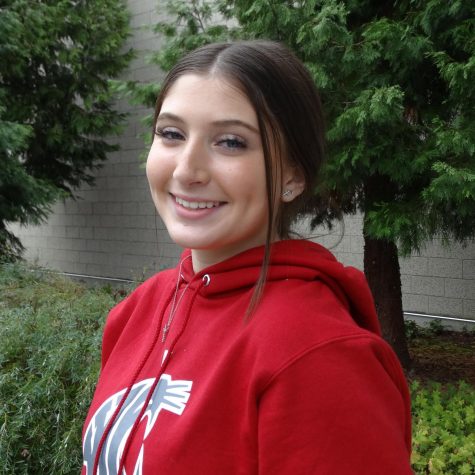She/Him/They
March 24, 2022
What are your pronouns? A question that myself and mostly everyone has been asked recently whether it is school, the workplace, or your friends and family. When being asked this
initially, I was not sure the appropriate way to respond. Why does it matter? Don’t I look like a girl? What is a pronoun? As I responded, “I’m a girl?” He clarified, “So she and her?” I didn’t
understand why it was important. Isn’t it pretty clear I’m a girl?
Pronouns have become a way for people to identify themselves, without being tied to a specific gender or identity. Whether it is having them in your Instagram bio or correcting
someone who may have misgendered you, it is a popular topic of conversation. According to Medical News Today, gender and sex are “interchangable” and can be used differently at
different times. They believe gender is a social construct and could be on a spectrum. This idea has made teens across the country more comfortable with their sexuality or identity, and don’t
necessarily know how they may actually want to identify when they are older. Kids and young adults may be taking these things too seriously and just want a community to relate and connect
to at the time that they engage in pronoun usage, gender identity and finding themselves.
As queer social media influencers have a huge audience in the younger generation, that is the cause of conflict and issues arrising. For example, the “Don’t Say Gay” Bill. Down in
Florida, the governor has made a bill to be put in place to ban talking about LGBTQ+ and pronouns usage in grades Kindergarten to third grade. The easy access to the internet and kids’
favorite celebrities talking about these topics has a bigger impact than these kids think. This idea and expression, while it’s great that kids are trying to find themselves, is it really a good
idea for these young adults to be using improper English? Meaning the pronouns they and them being plural, not specific to one person which makes no sense. Along with these new “Neopronouns” can be a word created to serve as a pronoun without expressing gender, like “ze” and “zir.” A New York Times article explained some recent animal pronouns like
“bun/bunself” and “kitten/kittenself.” Others refer to fantasy characters — “vamp/vampself,” “prin/cess/princesself,” “fae/faer/faeself” — or even just common slang, like “Innit/Innits/Innitself.”
I personally do not understand why you would want to be called something other than your real gender. I do not see the point in trying to identify with something else like a character,
animal or being plural. But as this generation makes it easier to discover your “true self,” the usage and curiosity of pronouns will most likely continue to grow.


